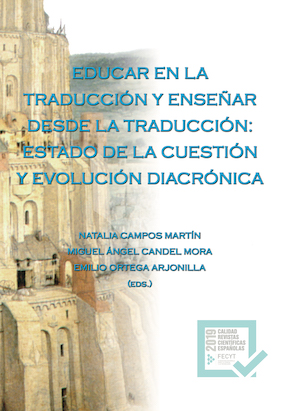Georges Cuvier in Spain. José Garriga y Baucís’s translation of Lecciones elementales de la historia natural de los animales
DOI:
https://doi.org/10.7203/qf.24.16314Keywords:
Georges Cuvier, José Garriga y Baucís, history of scientific translation, natural history teaching, natural sciences terminology Abstract
Abstract
This paper aims at analysing José Garriga y Baucís’s Spanish version of Tableau élémentaire de l’histoire naturelle des animaux (1797-1798) written by Georges Cuvier (1769-1832), promoter of palaeontology and comparative anatomy. This translation, published in 1834 in Valencia by Cabrerizo’s publishing house, is key in marking the arrival of Cuvier’s work in Spain, whose main contribution in the development of biology and anatomy specifically entails the description –based on structuralist criteria– of the animal kingdom.
The article focuses on aspects that link the text at hand with its “external history” –particularly, its didactic intention in the framework of the current regulations in the public education system of the time– and on the comparison between Cuvier’s work and its Spanish translation. This allows for considerations on the peculiarities of the latter with respect to the original text, in order to emphasize the lexical choices and linguistic sensitivity of the translator, who –in the “Advertencia” of his version of the treatise– highlights the importance of having a scientific terminology in Spanish and his consequent decision to assign “terminación castellana” to scientific lexis.
 Downloads
Downloads
Downloads
Published
How to Cite
-
Abstract1470
-
PDF (Español)559
Issue
Section
License
 Este obra está bajo una licencia de Creative Commons Reconocimiento-NoComercial-SinObraDerivada 4.0 Internacional.
Este obra está bajo una licencia de Creative Commons Reconocimiento-NoComercial-SinObraDerivada 4.0 Internacional.
Authors who publish with this journal agree to the following terms:
- Authors retain copyright and grant the journal right of first publication with the work simultaneously licensed under a Creative Commons Attribution License that allows others to share the work with an acknowledgement of the work's authorship and initial publication in this journal.
- Authors are able to enter into separate, additional contractual arrangements for the non-exclusive distribution of the journal's published version of the work (e.g., post it to an institutional repository or publish it in a book), with an acknowledgement of its initial publication in this journal.
- Authors are permitted and encouraged to post their work online (e.g., in institutional repositories or on their website) prior to and during the submission process, as it can lead to productive exchanges, as well as earlier and greater citation of published work (See The Effect of Open Access).



